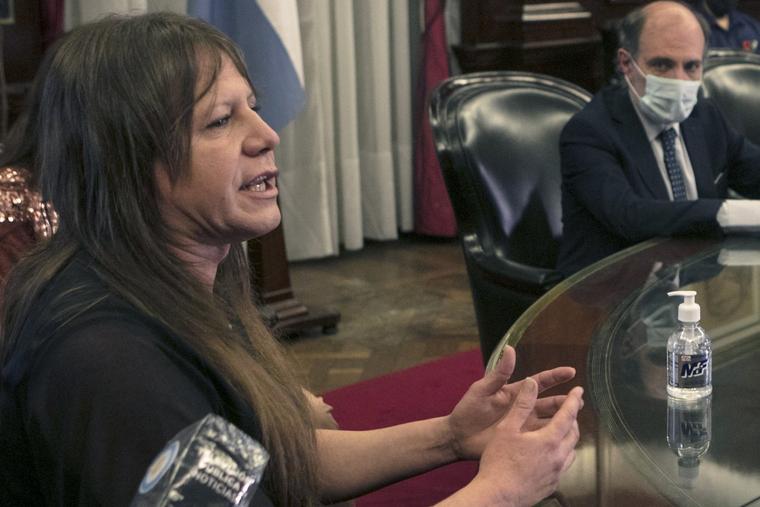Biden Marks Women’s History Month By Giving ‘Women of Courage’ Award to a Man
The administration is focusing on abortion and transgender ideology in a month meant to honor women’s achievements.

While Women’s History Month was intended as a time to honor the achievements of women throughout history, the Biden administration has chosen this March to emphasize that they believe women are dependent on abortion for basic equality. They also seemed to struggle with the definition of what a woman is, choosing to give a “Women of Courage” award to a transgender activist who is a biological male.
In President Biden’s statement proclaiming Women’s History Month, he said that “despite significant progress, women and girls continue to face systemic barriers to full and equal participation in our economy and society. Last year, the Supreme Court overturned Roe v. Wade, stripping away a constitutional right from the American people and the ability of millions of women to make decisions about their own bodies, putting their health and lives at risk.”
He promised that his administration would “continue to defend reproductive freedom to ensure that all Americans — regardless of their gender, race, ethnicity, sexual orientation, gender identity, or income — have the ability to make the choices that are right for themselves and their families.”
He pointed to “executive action” he has taken “to safeguard access to reproductive care, including medication abortion, help ensure women can receive emergency medical care, protect patients’ privacy and access to accurate information about their reproductive rights, and combat discrimination in the health care system.” He also renewed his call for Congress “to pass a Federal law restoring the protections of Roe v. Wade so all women in every State have the right to choose.”
The statement did not acknowledge the many pro-life women who see abortion not as a “right” or a “choice,” but as the ending of a human life in the womb. There is not a significant gender gap regarding views on the abortion issue. While the Biden administration lifted in-person screening requirements for the abortion pill and he sees access to it as something to “safeguard,” he did not address the concerns raised regarding life-threatening complications women could face due to an inaccurately dated pregnancy or an undetected ectopic pregnancy resulting from taking the abortion pill with no in-person screening.
Department of Health and Human Services Secretary Xavier Becerra echoed the president’s emphasis on abortion access in his statement for Women’s History Month, claiming that “today, 50 years after Roe v. Wade, our daughters have fewer rights than their mothers and grandmothers.” He said that as women are “contending with the loss of their constitutional right to abortion care. We will continue to stand shoulder-to-shoulder with women and girls across the country as we work to restore reproductive health care access for all.”
This month, the State Department also announced their International Women of Courage Award recipients who will be honored Wednesday on International Women’s Day with a ceremony hosted by Secretary of State Antony J. Blinken and First Lady Jill Biden at the White House.
Among these award recipients is Alba Rueda, Argentina’s Special Envoy for Sexual Orientation and Gender Identity in the Ministry of Foreign Affairs, a transgender activist who is touted by the State Department for actively campaigning “to change the name of the National Women’s Conference to the ‘Plurinational Conference of Women and Lesbian, Cross-Dresser, Transgender, Bisexual, Intersex and Non-Binary Persons’ to include diverse, dissident, and racialized identities.”
In a 2021 speech on “Women Leaders as Advocates for Equality and Inclusion of LGBTI Persons,” Rueda also promoted abortion, but unlike Biden, he did not frame it exclusively as a woman’s issue, instead calling it a right for “pregnant persons.”
Rueda praised an Argentinian law permitting abortion up through 14 weeks in pregnancy as the “voluntary interruption of pregnancy of all pregnant persons, recognizing the rights and autonomy of women, lesbians, trans men and non-binary persons.”
- Keywords:
- transgenderism
- women's history month















